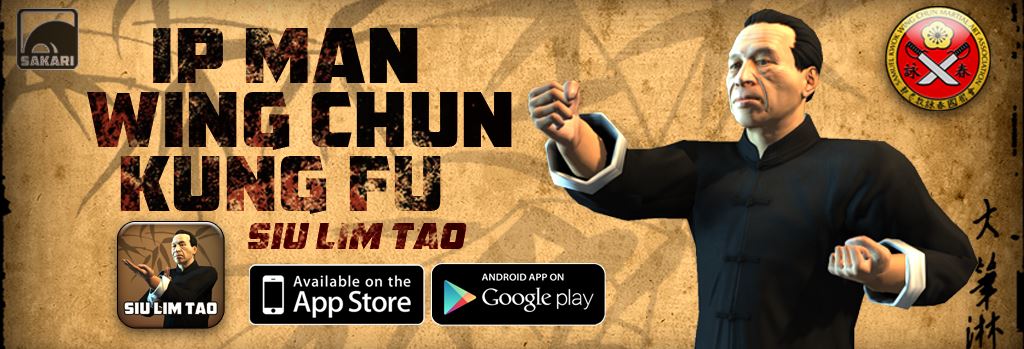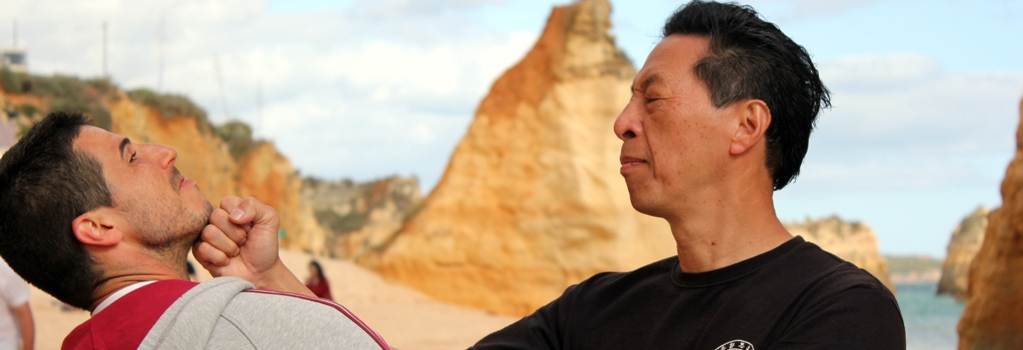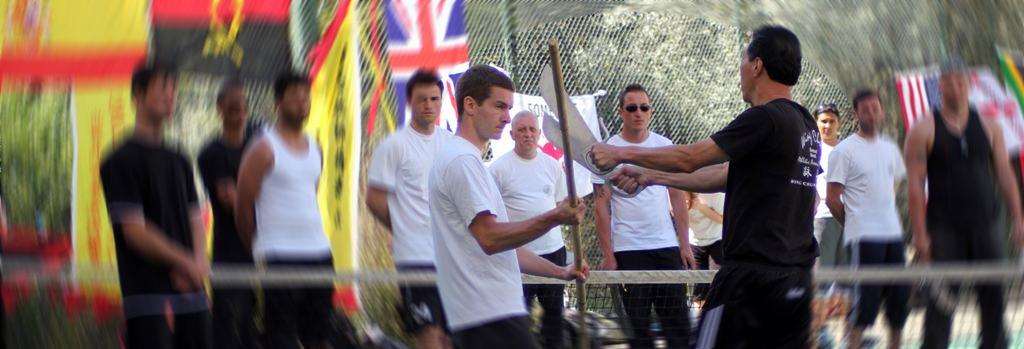How long have you been doing Wing Chun ?
Article by Dan Knight added on 3 Mar 2014. Last updated on 8 Apr 2014.
In this article I explore why it's meaningless to ask the question: How long have you been doing Wing Chun? I will also look at the plateau in training and how to improve again.
The question
I'm sure we have all been asked it, and I shamefully admit that I've often asked new training partners "How long have you been doing Wing Chun?" To help explain why I think its a meaningless question, I will start with an example.
The training scenario
I'm asked if I want to do some Chi Sau by a stranger in class. "Sure", I replied. I want to break the ice a bit so I ask. "How long have you been doing Wing Chun?" My new training partner replied. "About 10 years now. How about you?" I'm instantly impressed and excited about all the new things I will learn as I say "I have been training for almost a year now."
Well that's the context. If you think like I did back then, you will probubly be expecting me to explain all the new things I learned and all the times I got hit in the Chi Sau session. Sadly the training was unremarkable, the guy was neither good nor bad. There was nothing new my partner could show me. The problem was however not in my partner but in the question I asked. You may think I'm trying to show off that I was as good as someone who had been doing Wing Chun for 10 years after only a year of training. But that's not the case at all. Lets look at it another way.
At the time I was probably training around 10 hours a week on average. 4 hours a week of lessons with my Sifu, Samuel Kwok, another 2 hours of scheduled training without my sifu, plus a couple of hours sparring and cross training in other martial arts along with forms practice every night. My new Chi Sau partner on the other hand, he may have averaged just a hour a week for 10 years.
So if I phrased the question: How many hours of Wing Chun have you done? He would say around 500, and when asking me the same question, my answer would also be, around 500 hours. This therefore is why the original question at the start of this article is a pointless one to ask. Also, asking specifically about the number of hours a person has been training, is going to make you look a bit weird. Coupled with the fact no one keeps track of the exact number of hours they train anyway. So next time you think of asking that question to someone, think twice about what you want to know and if you are asking a meaningful question.
The bigger picture
I have hopefully made it pretty clear that explaining the amount of time you have been doing Wing Chun in terms of years is pointless. Simply because it doesn't distinguish between the student who does an hour every other week or 20+ hours a week. You should bare this is mind when you you read an article by someone, explaining how many years they have been doing martial arts, or how many years they spent learning with Ip Man. Remember the number of years has very little to do with skill or even experience. A persons skill is honed by the duration of training and the intensity of the training amongst other things. Not the amount of time that has transpired since their first lesson and now.
The leaning curve and its plateau
The speed at which any student learns any skill is dependance on a number of factors that I don't intent do go into in any detail. Equally the rate at which the student will learn is unique and may not follow the standard averages. However with that said I would guess most students ability in Wing Chun will, on average, follow a pattern as outlined below.
This graph shows good progress into the skill which tapers off over time. In other words, a student will be gaining lots of skill rapidly to start with, but as their training progresses the amount of new information and skills they learn will come at a slower rate.
Causes of the plateau
A number of factors can cause a plateau in skill. Some of the key issues are:
- All the forms have been learned. So time is spent improving what you already know.
- Your training partners no longer challenge you as much, so there is less pressure to improve.
- Your sifu (teacher) and siback (senior students), have taught you most of what they know.
- This is the natural process of an learning any skill
For now, I want to focus on the last point. Take a skill like learning your first language. As you progress through infant hood into child hood and adult hood, your skill progression slows down. By the time you are an adult, you will only learn the occasional new word or some new quirk of grammar. Equally take another skill, for example driving. You learn the most in the early stages and less and less for each period of time spent driving. This is one of the reasons why younger people can often become world champions at things like motor racing or sports even though they have only been driving a fraction of the time other competitors have.
The above graph shows two people with the exact same rate of learning. So although person B starts much later than person A, and they learn at the same rate the difference in skill soon becomes marginal. Whilst it is important to understand this is the natural outcome of learning a skill like Martial Arts, it doesn't necessarily mean you can't break that plateau.
Plateau busting ideas
1. Abandon the misconception that being strong isn't important in Wing Chun.
I believe that anyone who says "strength is not important in Wing Chun." Is either lying to you, or simply hasn't ever been in a fight or sparred with a stronger opponent. Before you scream all your protests at me, hear me out. I want to first examine a number of statements:
- Wing Chun is about redirecting your opponents force.
- A weaker person can overcome a stronger person with good technique.
- Wing Chun strikes to weak points like the eyes, nose, knees, groin and neck.
I believe all of the above statements to be true. However to conclude that strength is not important, is a massive mistake.
A persons ability to fight, falls into roughly three categories. Their skill and knowledge. Their experience. Their physical attributes like size and strength. If two people have similar skill, knowledge and experience the fight is likely be won by the bigger stronger person. In fact it makes so much of a difference that in sport fighting, organizations categorize mma, kickboxing, sanshou and boxing fights based on weight not or experience or grades. Yes you can still strike your opponents weak points, but an opponent who is stronger will strike them harder (and often faster), so they still have the advantage.
I appreciate this is a "bitter pill" for some Wing Chun students to swallow, but try to look at it in a new light. By abandoning this misconception, you now have a new way to make leaps and strides in your martial arts performance. Namely go to the gym and work out to get stronger! This doesn't necessarily mean getting bigger, it's about strengthening what you have. Remember the article on Ging? Ging, is a way of looking at power delivery. In short it's about how you use your strength. You don't need lots of strength to hit hard if you have good Ging, but having more strength means you have more to use well and turn into better Ging.
Once your knowledge and skill are very high, and you are at the point diminishing returns from your experiences, you can look to make yourself stronger in order to jump up off that plateau.
2. Up the intensity of your training and sparring.
As I eluded to in the last point, experience plays a large part in a persons over all ability. You might be amazing at the forms and have really clean crisp technique and be able to deal with all kinds of attacks during drills, but if you have not done a lot of sparring and intense Chi Sau, and done it with lots of different people and styles, your experience pool will be limited and your overall skill level is limited.
Sparring will sort the strong & effective techniques from the chaff! Chi Sau will do this to a certain extent, but during Chi Sau you start with contact so have the bridge between the two people already. Sparring doesn't have this. You have to create it, much like in real fights and therefore you have much more intensity. You can do break away Chi Sau or Gor Sau as a way to train this. This is essentially a form of sparring.
Therefore if you find yourself reaching a plateau, add some sparring into your routine. Start easy and build up. The key here is to find someone who you can train with, you don't want to be having a fight, you want to be learning. I found that getting the right gloves makes a big difference. Gloves that are small and thin make using Wing Chun very easy but make sustained sparring very dangerous. With the best control in the world your opponent can still try to rush in when you punch and and up colliding face first into your fist. If every sparring session ends in black eyes, split lips and a serious headache you or your partner wont want it to be part of your routine. It needs to be safer. However with gloves that are too big you will just revert to boxing as you cant use as much of your Wing Chun. Personally I found these gloves to be cheap but extremely effective. I rushed face first into a quick punch (trying to slip past) when my opponent had these on. My nose didn't break or even bleed as the gloves took the sting out. These experiences will force you to improve!
3. Start teaching other people to help your own understanding.
3. Make your training partners better.



